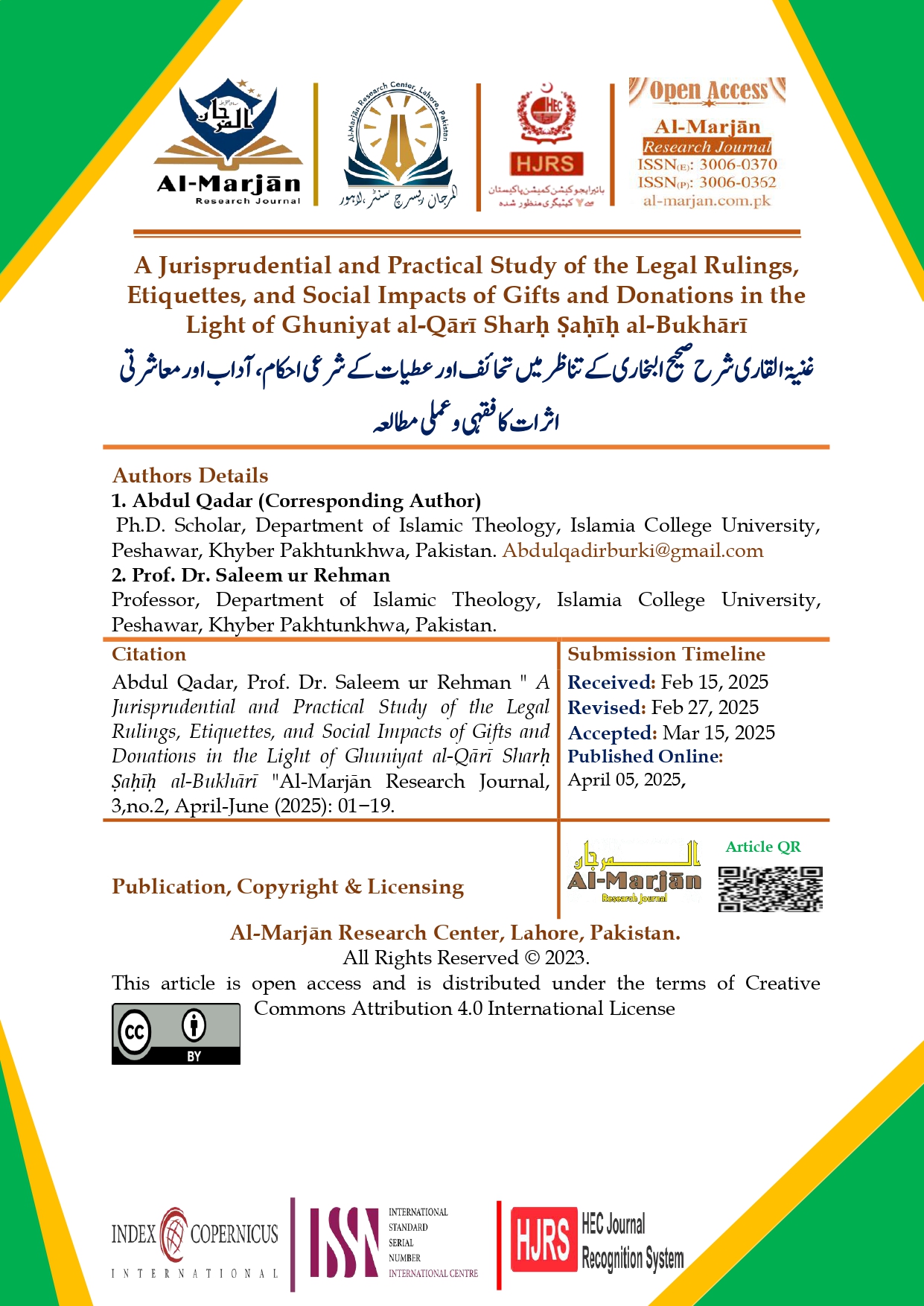A Jurisprudential and Practical Study of the Legal Rulings, Etiquettes, and Social Impacts of Gifts and Donations in the Light of Ghuniyat al-Qārī Sharḥ Ṣaḥīḥ al-Bukhārī
غنیۃ القاری شرح صحیح البخاری کے تناظر میں تحائف اور عطیات کے شرعی احکام، آداب اور معاشرتی اثرات کا فقہی و عملی مطالعہ
DOI:
https://doi.org/10.1234/b7cqrb55Keywords:
Gift-giving, Human Emotions, Islamic Jurisprudence, Hadith, Ṣaḥīḥ al-Bukhārī, Ghuniyat al-Qāri, Social HarmonyAbstract
Human beings are inherently social and emotionally connected, forming relationships that are nurtured through empathy, goodwill, and shared experiences. The emotional states of happiness and sorrow are often mutually experienced, and an individual’s well-being is closely linked to the emotions of others. In a morally conscious society, individuals tend to respond to positive intentions and behaviors with similar goodwill. This reciprocal exchange fosters emotional healing, reduces negativity, and builds a more harmonious social environment. Among the various actions that reinforce these values, the exchange of gifts stands out as a powerful and meaningful practice. When done with sincerity, gift-giving symbolizes love, generosity, appreciation, and strengthens bonds of affection and social harmony. These values, although innate, can be cultivated through intentional efforts and ethical guidance. This paper explores the legal, ethical, and social dimensions of gift-giving in Islam by drawing upon Hadith literature and its scholarly interpretation in Ghuniyat al-Qāri, a commentary on Ṣaḥīḥ al-Bukhārī. Utilizing descriptive, comparative, and deductive research methods, the study investigates the Shariah rulings, etiquettes, and benefits of this noble act. The findings emphasize how gift-giving, guided by prophetic teachings, fosters emotional well-being and strengthens the fabric of a just and compassionate society.






































